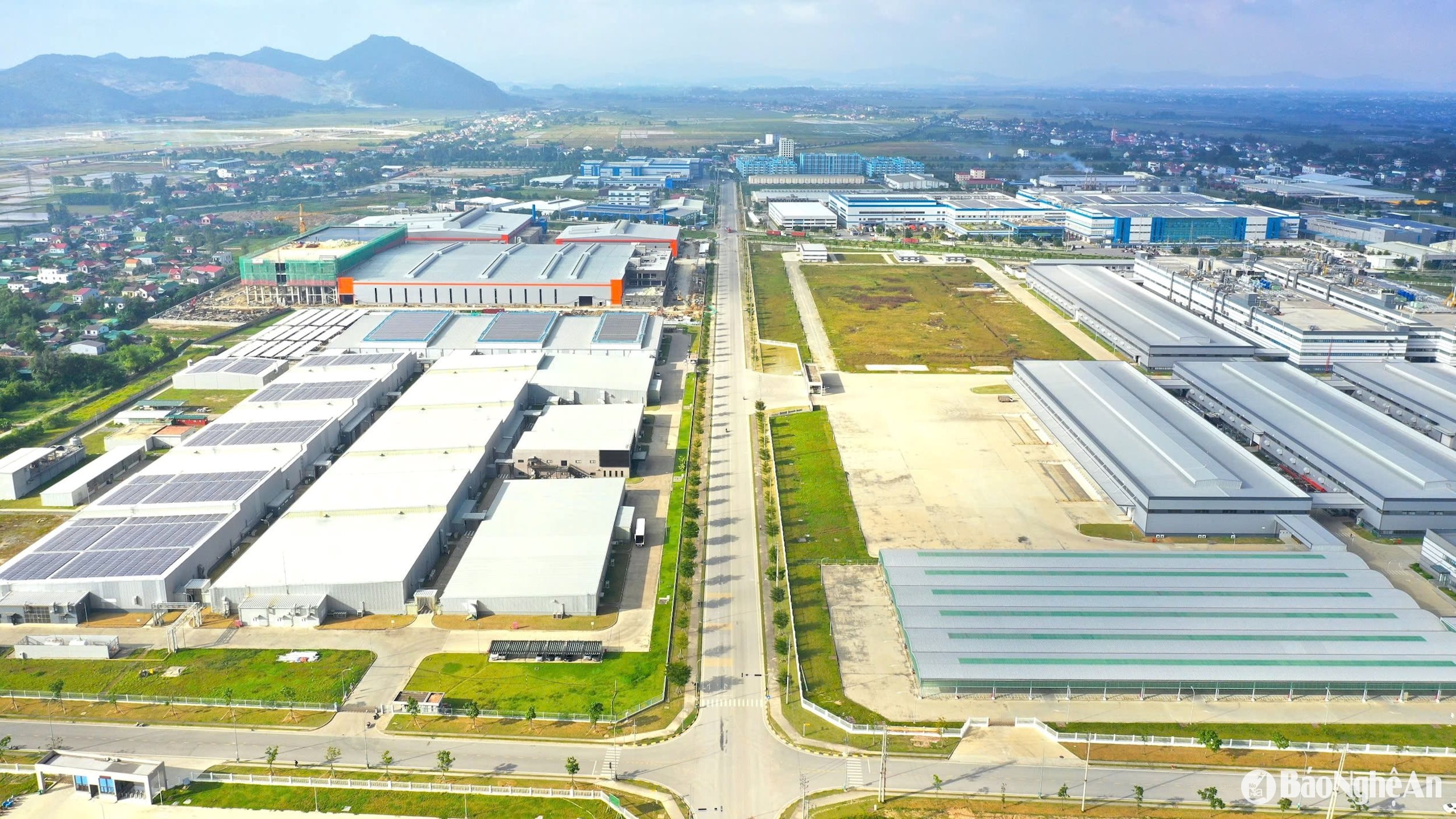According to Resolution 68-NQ/TW, the private sector currently comprises over 940,000 enterprises and more than 5 million business households, contributing approximately 50% of GDP, over 30% of total state budget revenue, and creating about 82% of jobs.
The resolution affirms that private sector enterprises are the most important driving force of the economy, pioneering growth, job creation, and improving labor productivity and national competitiveness. The goal by 2030 is to have 2 million enterprises, reaching 20 enterprises per 1,000 people; at least 20 large enterprises participating in global value chains; private sector economic growth reaching 10-12% per year; contributing 55-58% of GDP and 35-40% of state budget revenue.
By 2025, the goal is to review and eliminate unnecessary business conditions, shorten administrative procedure processing time, and reduce compliance costs and business condition requirements by 30%. Simultaneously, the aim is to provide public services to businesses regardless of administrative boundaries.

For the first time, our Party – specifically the Politburo – affirmed that the private sector is the most important driving force in development, innovation, productivity growth, and social welfare. Resolution 68 reflects a new, decisive mindset, creating a breakthrough in policy and understanding of the role of the private sector – a powerful transformation in both theory and practice. If implemented effectively, this Resolution will usher in a new era of development for the country and the business community.
The resolution emphasizes breakthroughs in the institutional environment: respect for property rights, freedom of business, and fair competition; and a sufficiently strong mechanism to effectively handle commercial disputes. This is the foundation for the private sector to thrive, connect, and expand. Citizens and businesses expect that, after the resolution is effectively implemented, the private sector will no longer face barriers to development, achieving equal opportunities with other domestic and foreign entities.
Previously, many problems of the private economy had been raised, but this time the Party has a clearer and more comprehensive understanding. The biggest obstacles are discrimination, lack of institutional protection, lack of orders from the State, and difficulty accessing large projects – which discourages this sector from growing, leading to the prevalence of household businesses and cooperatives that are larger than enterprises but have not received the recognition they deserve.

A new feature of Resolution 68 is the establishment of separate support mechanisms for three groups: large corporations, small and medium-sized enterprises (SMEs), and household businesses. The goal is to build a two-tiered economic structure: the upper tier consists of large corporations leading the economy, while the lower tier comprises a network of SMEs and household businesses linked together according to the successful NICs model.
The resolution also encompasses and identifies the broader private sector, not only within businesses but also the 5 million household businesses – potential future enterprises.
VinSpeed Group's proposal to participate in the North-South high-speed railway project is receiving support. If successful, this project will be a prime example, demonstrating the maturity and dedication of the private sector, and a practical testament to the new capabilities and stature of Vietnamese businesses. It will also serve as a measure of the effectiveness of the Party's policies, proving the shift in awareness, institutions, and mindset throughout the entire system.
The private sector is like a growing child – to mature, it must be given independence and the courage to participate in major undertakings. The state should not only be the "rule-maker" but also a major client, entrusting national-scale projects to the private sector. This needs to be accompanied by risk management scenarios and effective supervision to ensure national security and interests, as directed in the Resolution. If the North-South high-speed railway is successfully built by the private sector, it will be the biggest breakthrough, a vivid testament to the correctness of the policy.
For small and medium-sized enterprises (SMEs), the difficulties have been widely discussed, spanning all aspects: from input resources and output products to internal capabilities and corporate governance. They often have to fend for themselves from scratch, lacking cooperation, technology adoption, and "community strength." The current legal system is weak in protecting the rights of SMEs and minority shareholders, especially in handling contract disputes. Debt collection is a prime example – many businesses have their capital tied up due to uncollectible debts, while the legal mechanism has yet to provide an effective solution, risking a chain reaction of failures.
Furthermore, SMEs often lack long-term investment strategies and a "playing field" due to the absence of a substantive law on SMEs. They struggle to compete with large corporations, therefore, laws are needed to segment the market, create conditions for SMEs to develop niche markets, participate in large projects with corporations, and gradually grow.
Support policies must encompass the entire business ecosystem, from legislation to inputs and outputs – meaning they must truly understand what businesses need in order to address the right bottlenecks.
In the coming period, authorities need to make greater efforts, work alongside and listen to businesses, especially SMEs and household businesses, to design policies that are more realistic. Combating corruption and harassment – causes of increased costs and lost business opportunities – should be given the highest priority.
A good proposal is to allow SMEs to lease public assets, especially vacant or surplus land and buildings that are no longer in use after organizational restructuring. This would both support businesses with infrastructure and effectively utilize public resources, while also helping businesses access capital more easily.
Alongside government support, SMEs themselves must assert their role by operating legally, building a corporate culture, enhancing national spirit, and aspiring for progress, as the resolution clearly states. More importantly, they must strengthen cooperation, cohesion, and mutual support within the business community – abandoning opportunistic, illegal, and unethical business practices.
Businesses need to proactively research the market, design products, improve quality and compete on price, build their own brand, and explore foreign markets for export. They must know how to collaborate to form joint-stock companies and develop along the value chain. To go far, you must go together – if you start "from A to Z" alone, you will remain small.
If private enterprises are trusted, given favorable conditions, and supported by the Party, the State, partners, the market, and consumers, this sector will certainly grow stronger, consolidate its position, and play an increasingly important role in the country's development.
Source: https://baonghean.vn/thong-diep-va-ky-vong-moi-tu-nghi-quyet-68-nq-tw-10298218.html









































































































Comment (0)